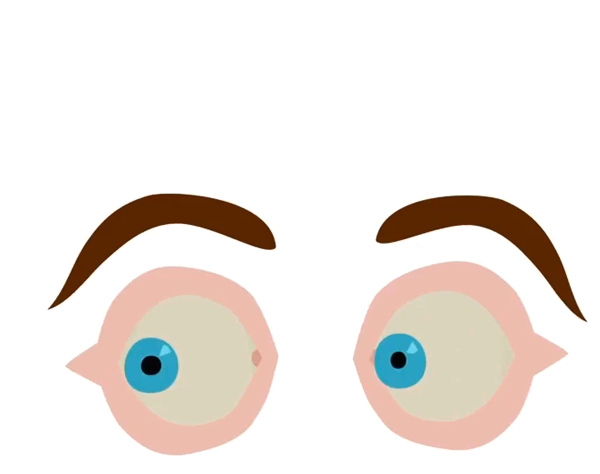
Stress, Trauma and Burnout
June 12, 2015
Websites To Visit About Depression and Anxiety
June 12, 2015
In day-to-day talking with our friends or family, we tend to speak of depression, stress and anxiety as if they are interchangeable or describing the same thing. This is not the case. Part of the reason for coming to see a psychologist, is to sort out whether any of these descriptions fit your experience. It is also important to remember that many people have elements of depression and anxiety and may not have “clinical diagnosis” and may not require medication.
- Depression refers to an experience where you feel down most of the time which is called “low mood” and you have also lost interest in things you usually enjoy. You may also have changes in your sleep, appetite, feel guilty, de-motivated and generally withdraw from others.
- Stress is usually characterized by a sense of feeling overwhelmed. This feeling may be due to your coping capacity being over-stretched or having been under pressure for too long. Some stress can help us to perform our day to day functions, too much stress leaves us “distressed” and often exhausted.
- Anxiety is a sense of fear or dread that something terrible is going to happen. Anxiety can be general or specific to a place, social situation or thing (phobia)
Depression, stress and anxiety are the most common problems that lead people to go to a psychologist. At Psychology on Parade, you will receive what is called “evidence-based” treatment without that treatment being out of a text book or too simplistic.
What do we know about depression?
- It is the fourth most significant cause of suffering and disability worldwide behind heart disease, cancer and traffic accidents
- It will be the second most debilitating human condition by 2020
- Depression exists in a social, psychological and biological context; that is depression is influenced by genetics, diseases, hormones, cognitive distortions, influences of family/workplace/friends, history and drug/alcohol use to name a few
- Depression onset is associated with the number of anxiety issues a person may have, the persistence of anxiety based avoidance behaviors and how much they affect the person’s psychosocial functioning. Put simply, if you have enough anxiety symptoms for long enough and they affect your life enough you will probably get depressed
- Insomnia and loss of energy are the most common symptoms of depression across cultures and women had a higher rate in all countries
- Response styles effect depressed mood and affect the course of depressive episodes so ruminative responses, that is thinking about things over and over again, prolong and intensify depressive episodes, create a level of passivity and negativity that are likely to raise the level of depressive symptoms in individuals over time
- Therapies with the greatest empirical support all emphasise ACTION in treatment; clients may feel better in merely supportive therapy but they will do better in treatment with direction
- Depression has serious health consequences not just for mood. Studies have shown that a group of adults from 55-85 years who did not have heart disease at the start of the study but experienced major depression had their risk of death from heart disease quadruple. For those who had already had a history of heart disease, cardiac deaths tripled in those suffering from major depression (Penninx et al, Archives of General Psychiatry, March, 2001)
- Depression is a risk factor also in stroke influencing frequency, functional recovery and possible post-stroke mortality ( Nemeroff & O’Connor, American heart Journal, October, 2000
Socrates said: “The unexamined life isn’t worth living”. Given the down side of rumination, neither is theoverexamined life!
What is psychological treatment about then?
Our brains naturally try to create meaning or patterns from our experience. Ambiguity and uncertainty arise from the brain/mind’s desire to understand and it is the tolerance or lack of tolerance for these uncertainties that can partly explain anxiety or depressive reaction. Our perspective on life which is called our attributional style can affect how we deal with events and experiences. So negative attributional styles include seeing events as global (“It affects everything”) or stable (“It will always be this way”) or internal (“It’s me”) or external (“It’s them”). All of these things then predict progress in treatment, recovery and proneness to relapse in mental health.
One of the first goals of treatment is to help the client shift to a position of contemplating change and therefore to be experiencing an “unstable attributional style” that is to create a sense of realistic hopefulness
We pursue this goal by developing a therapeutic alliance between the client and therapist so that the client’s goals and the means and ends of achieving those goals are supported by the relationship between the client and their psychologist. We try to help clients to shift their focus in listening to internal self talk or beliefs (“What is worth listening to?”) and look at future possibilities rather than past events as a guide to choices. Therapy is thus a processs of reinforcement of critically thinking about our thinking and its relative merits as a guide to action. This involves help with symptom management, that is developing skills to manage, for example, panic attacks, avoidance, communication, relationships, ‘bad days’, de-motivation, hopelessness etc


